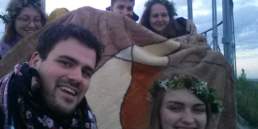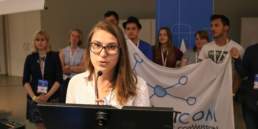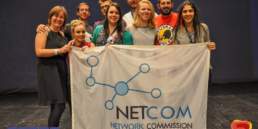Over the past three years the network asked for more than 1000 exceptions to the Antenna Criteria. “This information was pretty shocking for us, and we see it as a sign that something is wrong with the current system”, says Oksana Prokopchenko, Vice-Speaker of Network Commission. Together with her fellow Netcom members the founder of AEGEE-Sheffield is working on a substantial reform of the Antenna Criteria. “We had a very successful Progress Meeting at Agora Istanbul.” In her other time, Oksana, who is in the middle of her term now, made a month-long NetCom trip to nine locals and one contact, proving that being Network Commissioners is one of the greatest and toughest jobs in AEGEE.
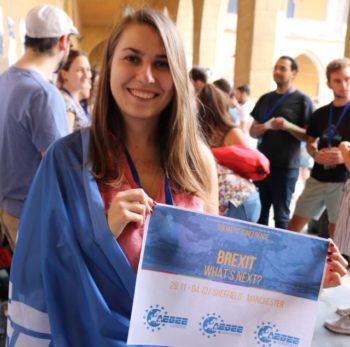
Golden Times: Hello Oksana, how was the Agora Istanbul for you as Network Commissioner?
Oksana Prokopchenko: It was my first Agora as a Network Commission envoy, and I must say it was really exciting! Very busy and very inspiring, with all the AEGEEan vibe and long-awaited meet-ups. It was also quite productive for NetCom – I am particularly happy about the meetings with our areas, the knowledge transfer with the newly elected NetCommies and a great Progress Meeting on Antenna Criteria!
GT: You started off as AEGEE-Kyiv member, were in the board in 2012/13, before you moved to the UK and founded AEGEE-Sheffield. What was your motivation to create an antenna in the UK and which obstacles did you have to overcome?
Oksana (smiles): In Sheffield, everything started as a small idea – I wanted to try to create a local in the city, as I missed AEGEE a lot. However, with time more and more people were telling me that AEGEE in the UK has no chance of survival and that it will be just a waste of my time. So you can say, I took it as a personal challenge!
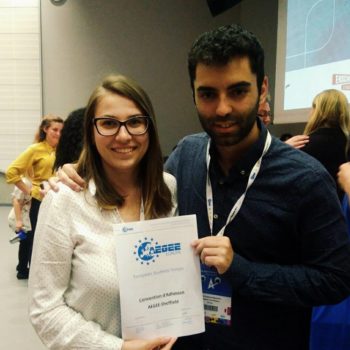
GT: So now you proved that founding a local in the UK can be successful…
Oksana: Yes, it is just a matter of finding the right approach to them – as it is with any locals in the network. Now with the third European event on the British Isles coming up in the last year, I feel like we are on the right path.
GT: Talking about the UK, a few days ago half a million people rallied in the UK, demanding a new referendum. Do you still have hope that the Brexit can be avoided?
Oksana: I believe that sometimes people can do incredible things with passion and determination. At our “Brexit – What Next?” conference in Manchester-Sheffield last December, we met these kinds of people, passionate activists with a clear aim to do everything possible to avoid this disastrous mistake. Only time will show whether they will succeed, but everything still depends on British people.
GT: Back to the Netcom: some of your locals and contacts have been quite in the limelight. Contact Kobenhavn signed the Convention d’Adhesion at Agora Istanbul, in Gothenburg there is a new contact; AEGEE-Stockholm signed the Convention in Kraków and is developing – What is your contribution to it?
Oksana: Indeed, Nordic locals are doing an amazing job and all credit goes to the outstanding people, who actually make it happen. From my side, I try to support them in any way I can remotely, giving information and encouraging their ambitious ideas – like the upcoming New Year’s event of AEGEE-Helsinki and AEGEE-Stockholm. With such devoted and outstanding people, it is truly a pleasure.
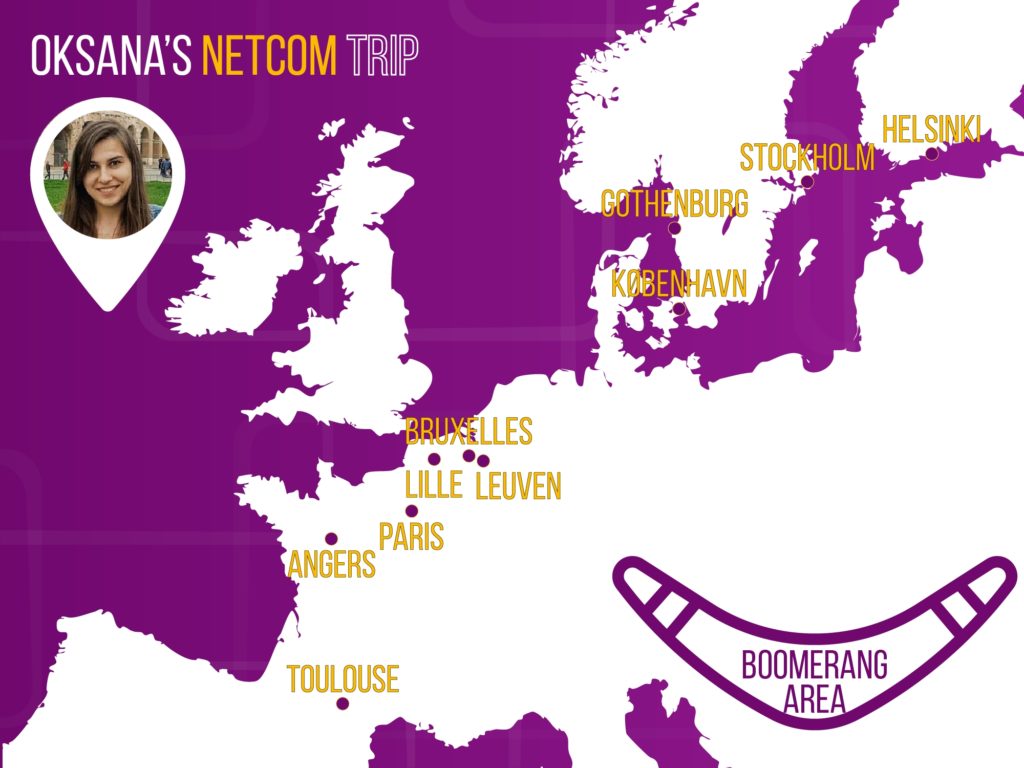
GT: You made a big network trip recently. Which places did you visit?
Oksana (smiles): I’ve been to quite a few places, it was indeed a crazy month-long trip! I was lucky to make it after my graduation and before going full adulting. I visited AEGEE-Leuven, AEGEE-Brussels/Bruxelles, AEGEE-Lille, AEGEE-Paris, AEGEE-Angers, AEGEE-Toulouse, AEGEE-Helsinki, AEGEE-Stockholm, AEGEE-Kobenhavn and Contact in Gothenburg.
GT: What did you do on your trip exactly?
Oksana: It was really important for me to establish a personal connection with the board members, to talk to them and hear about their struggles, but also dreams, passions and ideas; to see their reality and to offer my full attention to them for a few days of each stop. On a practical note, I tried to participate in some kind of promotion, local event or members’ meeting in every city – to help them out and meet more members. Besides each local’s individual stop, for me it was also a way to bring together the Boomerang area – it is a distribution area, which was basically created with the beginning of my term. I see a lot of potential in it, as locals in my area face similar realities and can benefit a lot from cooperating and learning from each other.
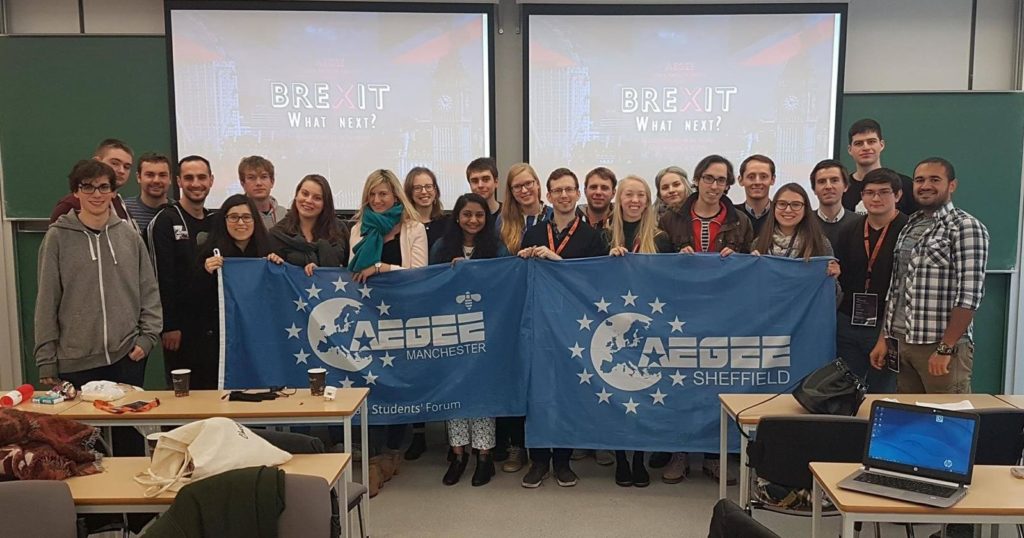
GT: What will you focus on in the second half of your Netcom term?
Oksana (smiling): I hope I will not make any spoiler if I say that there are a few more new Contacts coming in my area – in different parts of it! My amazing SubCom team and I are working on strengthening connections between our locals, one of the things we are planning is an area-wide informal meeting somewhere in Europe! Most of all, though, I idealistically hope to find a way to ensure the sustainability of my locals, both existing and newly created ones. This is also one of the focuses of the NetCom team and our Work Plan.
GT: At the Agora in Istanbul there was an Antenna Criteria progress meeting. Can you sum up what was the purpose and the outcome of the meeting?
Oksana: As NetCommies, we work with Antenna Criteria on a regular basis, assisting locals with their fulfilment. Yet, one side of this work remains largely unseen by the network – the exceptions. The Antenna Criteria internal project team collected some pretty staggering statistics on the exceptions that locals are asking before each Agora, to avoid downgrade or deletion.
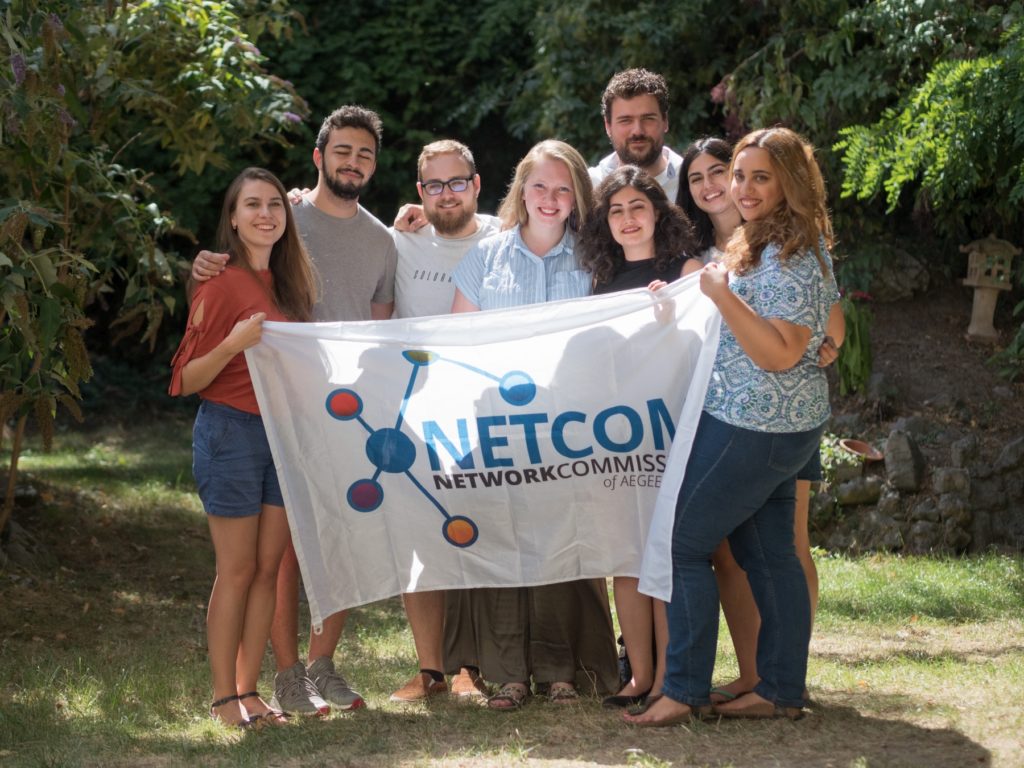
GT: Can you give some examples for these exceptions?
Oksana: For example, did you know that out of all locals we have today, only 19 did not ask any Antenna Criteria exceptions in the last six Agorae? This means, all the rest could be potentially downgraded or deleted, and in most cases, that did not happen only because Network Directors were kind enough to grant them exceptions. In total, over the last six Agorae, the number of exceptions asked by locals is more than 1000. This information was pretty shocking for us, and we see it as a sign that something is wrong with the current system. We want to find a solution to that and to ask the network, what can we do about it? Such consultation and discussion was the main purpose of our progress meeting. We also had a chance to introduce the new (informal) concept of Health Indicators.
GT: What are Health Indicators?
Oksana: Health Indicators are recommendations or guidelines for how to develop your local. Our network is insanely diverse, and the strategies for development vary a lot. There is simply no universal solution on how to grow a local and make it sustainable. That’s why we are gathering great yet simple to use practices from all around the network, and will start using them as the additional help for both NetCommies and as a self-help tool for locals themselves.
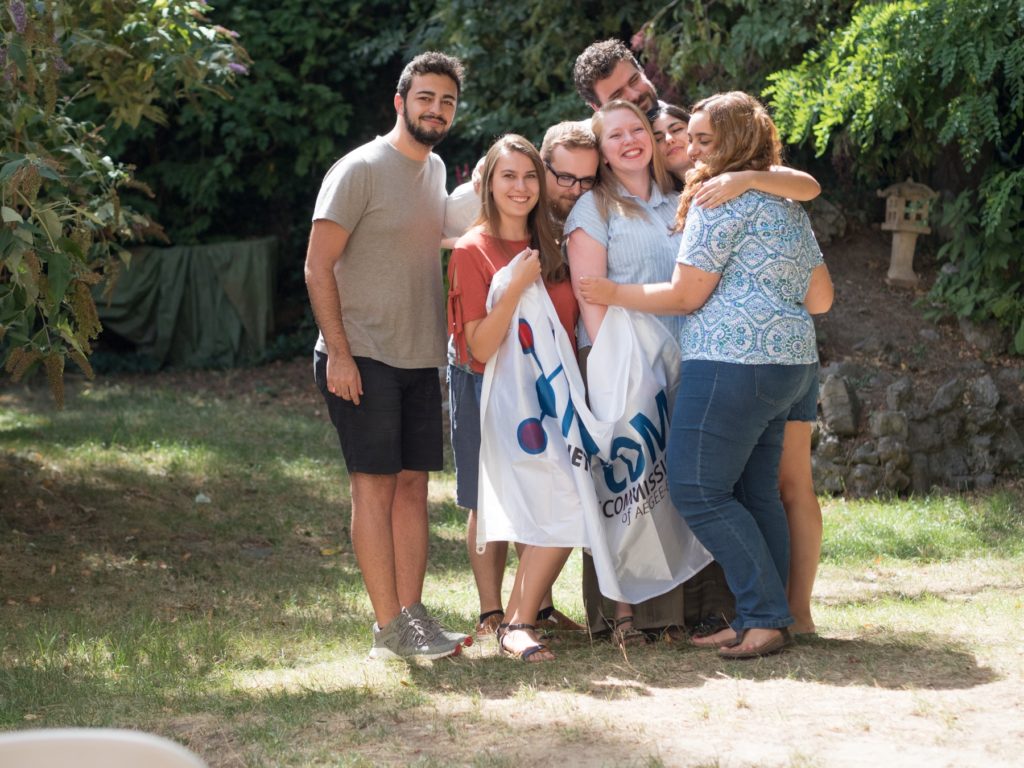
GT: Sounds very useful indeed. Did you get some feedback?
Oksana: The outcome of the Progress meeting was very reassuring – we collected many opinions and ideas on the usefulness – or uselessness – of each specific Antenna Criterion, and received good feedback on the new Health Indicators.
GT: What will happen next? Will we see another Antenna Criteria reform proposal at the next Agora?
Oksana: The consultations about Antenna Criteria are still going on – we will have respective sessions at our autumn NWMs and RTCs, which will allow us to cover the wide range of opinions from all locals and analyse the data. Of course, the future actions of NetCom will depend largely on the ideas we gather and the overall mood of the network. We believe it is a crucial issue for the whole organisation, and we want to approach it with all the knowledge we can get. So please, if you have a thought on the topic – tell us about it, we want to know your opinion! You can contact us on netcom@aegee.org or by messaging our Facebook page: www.facebook.com/Network.Commission.AEGEE.

